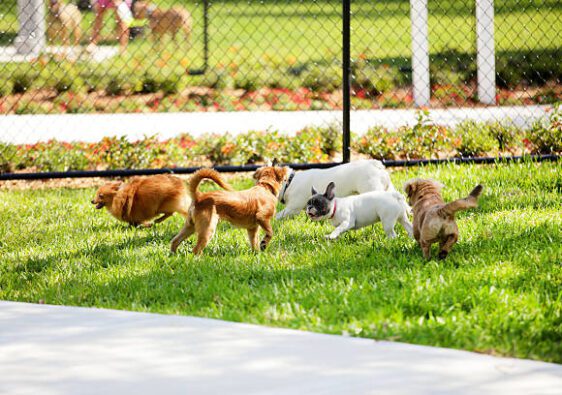Dogs, our loyal and beloved companions, bring joy and happiness into our lives with their wagging tails and unconditional love. As responsible pet owners, it’s our duty to ensure that our furry friends lead healthy and fulfilling lives. One crucial aspect of their well-being is their diet.
Just as we watch what we eat, we must pay close attention to what we feed our canine companions. Certain foods that are perfectly safe for us can be harmful, or even deadly, to dogs. Below we’ll discuss harmful foods for dogs that you should avoid to keep them safe and healthy.
Chocolate
Chocolate is a beloved treat that brings smiles to human faces. However, this delectable delight can spell disaster for our furry friends. Chocolate contains substances called theobromine and caffeine. These substances are stimulants that can wreak havoc on a dog’s nervous system and heart.
Depending on the type and amount of chocolate ingested, dogs can experience a range of symptoms, from vomiting and diarrhea to seizures and even death. Dark chocolate and cocoa powder pack a more potent punch of these toxic compounds, making them particularly hazardous.
Grapes and Raisins
These seemingly harmless fruits can lead to severe kidney damage in dogs. The exact cause of their toxicity remains unknown, and not all dogs are affected, but it’s best to err on the side of caution and avoid giving grapes or raisins to your furry friend. Ingesting even a small amount of grapes or raisins can cause vomiting, diarrhea, lethargy, loss of appetite, and abdominal pain.
The symptoms might not appear immediately after consumption and can take several hours to manifest. Some dogs may be more sensitive to grapes and raisins than others, making it essential to avoid these fruits altogether.
Onions and Garlic
Onions and garlic are also considered harmful foods for dogs. These common kitchen ingredients contain compounds that can damage a dog’s red blood cells, leading to a condition known as Immune-Mediated Hemolytic Anemia (IMHA).
The specific substances responsible for this toxicity are thiosulfates. While small amounts of onion or garlic may not cause immediate harm, regular consumption or large quantities can be dangerous.
Symptoms of onion or garlic toxicity include the following:
- Weakness
- Lethargy
- Vomiting
- Diarrhea
- Pale gums
In severe cases, dogs may experience difficulty breathing and collapse. It’s important to note that both raw and cooked forms of onions and garlic can be harmful, so it’s best to avoid feeding any dishes containing these ingredients to your dog.
Avocado
Avocado contains a substance called persin, which, in large amounts, can be toxic to dogs. Persin is found in various parts of the avocado, including the fruit, pit, leaves, and bark. While the exact levels of persin can vary between avocado varieties, it’s advisable to avoid feeding avocados to your dog altogether.
Additionally, the large pit in the middle of avocados poses a choking hazard, and the high-fat content of the fruit may lead to digestive issues. While small amounts of avocado flesh might not necessarily harm your dog, it’s best to play it safe and opt for other treatment options.
Alcohol
Alcohol can have devastating effects on dogs. Even small amounts can lead to coordination issues, vomiting, diarrhea, and breathing difficulties, and in severe cases, it can cause central nervous system depression and even death. Dogs are more sensitive to alcohol’s effects than humans due to their smaller size and differences in metabolism.
The symptoms of alcohol poisoning in dogs can include confusion, lethargy, staggering, seizures, and a decreased body temperature. It’s crucial to keep all alcoholic beverages away from your dog and to ensure that accidental exposure does not occur.
Bones
While it might seem natural to give your dog a bone to chew on, it’s essential to choose the right type. Cooked bones, especially those from poultry, can splinter easily and cause choking or damage to the digestive tract. Raw bones, on the other hand, can still pose risks, such as bacterial contamination or broken teeth.
If you decide to give your dog a bone, make sure it’s an appropriate size and type for your dog’s breed and size. Always supervise your dog while they’re chewing on a bone to prevent any potential accidents.
Almonds and Macadamia Nuts
It’s essential to remember that not all nuts are safe for dogs; for instance, can dogs eat almonds? Almonds can pose risks due to their hard texture and potential to cause choking or digestive issues.
Macadamia nuts can cause muscle tremors, weakness, vomiting, and an increased body temperature in dogs. The exact mechanism behind this reaction is unknown, but even a small amount of macadamia nuts can lead to these symptoms.
If your dog ingests macadamia nuts, it’s essential to seek veterinary attention. The symptoms usually appear within 12 hours of ingestion and can last for up to 48 hours. Keeping macadamia nuts and products containing them away from your dog is the best way to prevent this type of toxicity.
As responsible pet owners, ensuring our furry companions avoid dangerous foods like macadamia nuts and almonds is crucial for their well-being and health.
Dairy
While some dogs can tolerate small amounts of dairy, many are lactose intolerant. Lactose is the sugar found in milk, and dogs with lactose intolerance lack the necessary enzyme, lactase, to break it down properly. Feeding your dog large quantities of dairy products can lead to digestive upset, including diarrhea, stomach discomfort, and gas.
If you’re unsure whether your dog can tolerate dairy, it’s best to avoid it altogether. While some dairy products like plain yogurt might be better tolerated due to their lower lactose content, it’s advisable to consult with your veterinarian before introducing any new dog food brands into your dog’s diet.
Caffeine
Similar to chocolate, caffeine can cause restlessness, rapid breathing, increased heart rate, tremors, and even seizures in dogs. Theobromine and caffeine are both found in chocolate, and caffeine is also present in coffee, tea, energy drinks, and some medications.
Avoid These Harmful Foods for Dogs
It’s crucial to remember that each dog is unique, and individual sensitivities may vary. If you suspect your dog has ingested any of these harmful foods or is exhibiting unusual symptoms, contact your veterinarian immediately. Remember to read labels, keep potentially harmful foods for dogs out of reach, and be mindful of homemade dog food and other brands you share with your furry friend.
For more helpful articles, check out the rest of our website.



